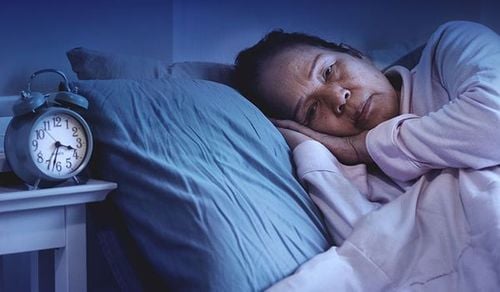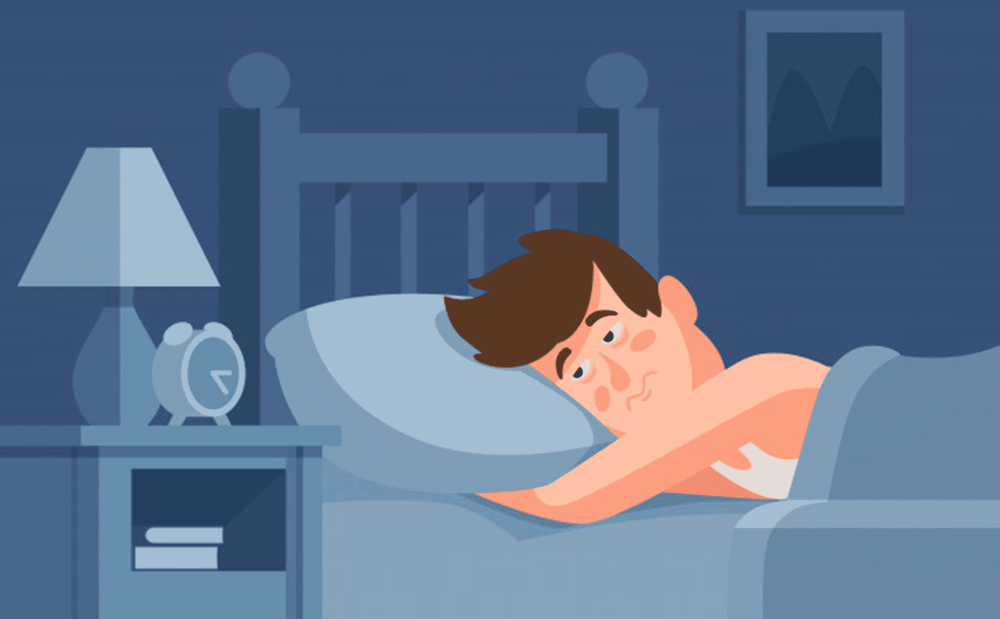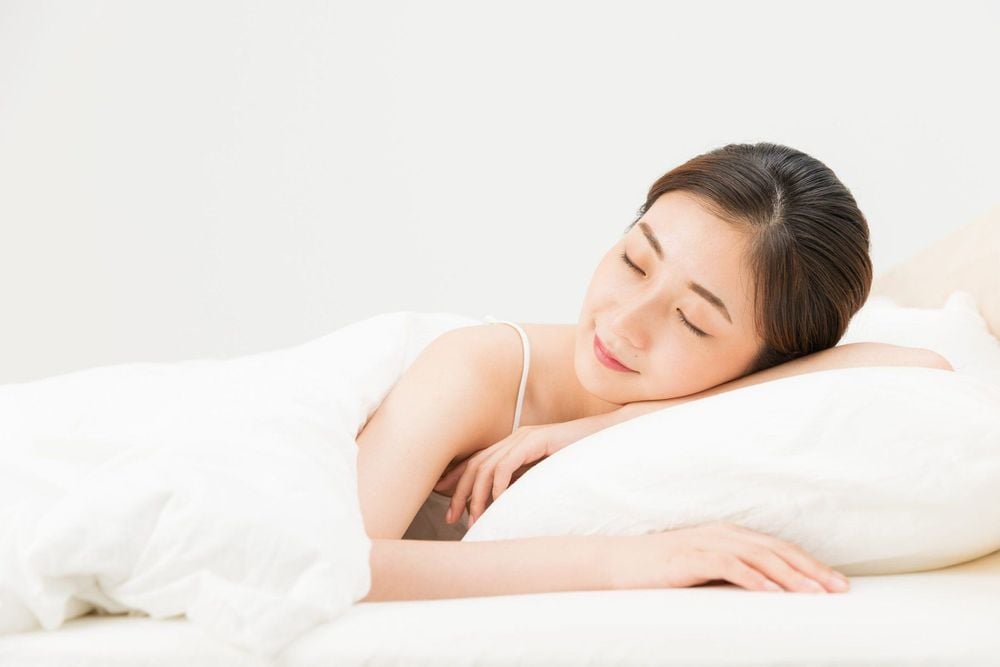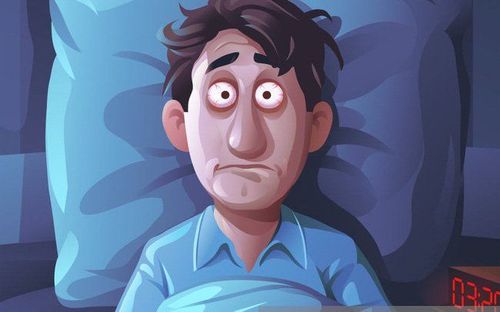This is an automatically translated article.
Sleep is one of the most important factors for good health. Insomnia and sleep deprivation will seriously affect daily life, as well as long-term health. The causes of insomnia such as stress, anxiety, stimulants, drug use, ... are found in many people.1. How does sleep loss affect health?
Sleep is one of the most important factors for good health. Insomnia, insufficient sleep will significantly affect daily life such as reduced work productivity, drowsiness in the morning,... Whether you have trouble sleeping or have complete insomnia, it can be affect your overall health, relationships and work productivity. If you have insomnia, your doctor can help you figure out what type of insomnia you have.Primary insomnia is insomnia that is not caused by symptoms of another medical condition. Insomnia is divided into 2 categories: acute or chronic. Acute insomnia lasts only a few days or weeks, but chronic insomnia is a long-term condition.
If insomnia stems from an underlying condition it is called secondary insomnia. This is the most common type of insomnia, which can be acute or chronic. Some common causes and risk factors for secondary insomnia seriously affect your sleep and health.
SEE ALSO: Not sleeping deeply, waking up can't get back to sleep is a sign of what disease?
2. Causes and risk factors for insomnia
2.1 Stress and anxiety Anxiety can make your mind more active at night. Problems at work, school, or family can be worrying. This makes it difficult or impossible for you to fall asleep. Traumatic events such as the loss of a loved one, divorce, or job loss often cause lasting stress and anxiety. These conditions that affect over a long period of time can lead to chronic insomnia.2.2 Depression Depression is one of the common causes of insomnia. This may be due to a chemical imbalance in the brain that affects sleep patterns. Alternatively, you may be overwhelmed by fears or troubling thoughts, which may prevent you from sleeping well.
Insomnia can be a common symptom of other mental disorders. Bipolar disorder, anxiety, or post-traumatic stress disorder can all cause sleep problems.
2.3 Hormonal changes Women are twice as likely to suffer from insomnia than men. Hormonal changes during the menstrual cycle and during menopause are thought to be responsible for insomnia. Insomnia often occurs during the time leading up to menopause, known as perimenopause, when night sweats and hot flashes often disrupt sleep. Experts believe that a lack of estrogen may contribute to sleep problems in postmenopausal women.

Sự thay đổi hormone trong cơ thể có thể là nguyên nhân khiến bạn không ngủ được
2.5 Medications Some over-the-counter and easily available drugs can cause insomnia. Accordingly, pain relievers, decongestants, and weight loss products may contain caffeine or other stimulants. Antihistamines can make you drowsy at first, but they can lead to frequent urination, which can later disrupt sleep and make you need to go to the bathroom more at night.
Many prescription drugs can disrupt sleep including:
Antidepressants Heart and blood pressure medications Allergies Stimulants 2.6 Stimulants These drinks often contain caffeine, which stimulates the brain such as:
Coffee Tea Soft drinks Energy drinks These stimulants can interfere with a good night's sleep. Drinking coffee in the late afternoon can help keep you awake at night. Nicotine contained in tobacco is a stimulant that can inhibit sleep.
Alcohol is a sedative that may help you fall asleep initially, but it will block the deeper stages of sleep and leave you tossing and turning. The deep stage of sleep is necessary for adequate rest.
MORE: Any solution for insomnia?
2.7 Health problems A variety of health problems can contribute to insomnia. Sleep problems are related to chronic medical conditions or their symptoms, such as:
Chronic pain Shortness of breath Sleep apnea Arthritis Diabetes Cardiovascular Disease Obesity Cancer Cancer Frequent urination Gastroesophageal reflux disease Excess thyroid gland Menopause

Không ngủ được có thể do một vài vấn đề sức khỏe như: Khó thở, đau mãn tính, viêm khớp,...
2.9 Sleep Disorders Common sleep disorders, such as restless legs syndrome, can disrupt sleep. This is a crawling sensation in the lower part of the leg that only movement can relieve. Sleep apnea is a breathing disorder characterized by loud snoring and brief pauses in breathing.
Also, worrying about not getting enough sleep can also lead to more insomnia. To improve this situation try changing your usual bedtime routine with the following ways:
Relaxing bath Listen to some soothing music. Avoid watching television or working in bed. Try not to eat right before bed as your body will be busy with digestion while you are sleeping. Eating right before bed can also trigger heartburn. 2.10 Environmental changes Shift work or long distance travel can affect the body's circadian rhythms. This is the 24-hour biochemical, physiological, and behavioral cycle that exposure to sunlight affects. This rhythm is your internal clock that helps regulate your sleep cycle, body temperature, and metabolism.
In summary, sleep is important for good health, whether your insomnia is acute or chronic, adopt a healthy sleep routine and avoid substance abuse, reduce Weight loss if you are overweight or obese can help you get a good night's sleep. If you have any sleep problems, you can go to a medical facility to be examined by a doctor and have appropriate treatment.

Xây dựng thói quen lành mạnh, tránh sử dụng chất kích thích để có thể ngủ ngon
Through the indicators given by the sleep polygraph, it is possible to help doctors at Vinmec best diagnose different types of sleep disorders, know what kind of sleep disorder the patient is suffering from. for appropriate treatment guidelines.
Please dial HOTLINE for more information or register for an appointment HERE. Download MyVinmec app to make appointments faster and to manage your bookings easily.
Reference source: healthline.com





![[Vinmec - Q&A with experts] Topic 01: Insomnia](/static/uploads/small_20190716_042752_932594_hoi_dap_cung_chuyen_max_1800x1800_jpg_28a5ee22bf.jpg)






